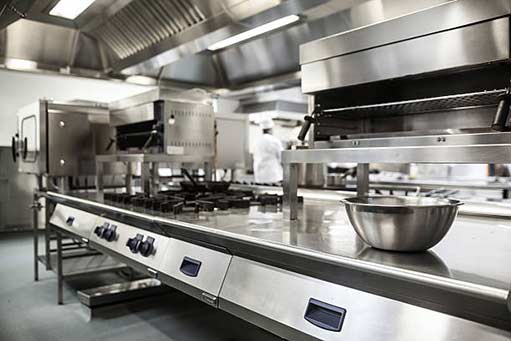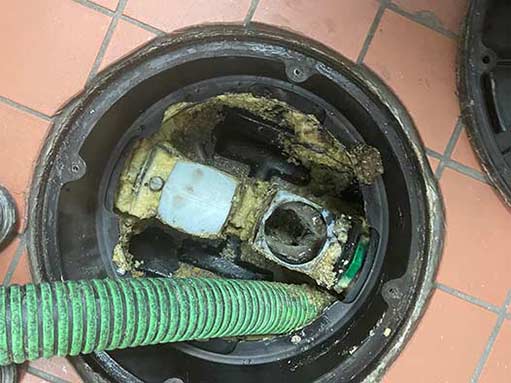
As a business owner or manager, it is crucial to keep your kitchen in top shape to ensure efficient operations, food safety, and overall customer satisfaction. Here we will provide you with valuable tips and best practices to help you maintain a clean and functional commercial kitchen. Whether you own a restaurant, catering service, or any other food-related establishment, these tips will be beneficial to you.
The Importance of Regular Cleaning
One of the most important aspects of maintaining a commercial kitchen is regular cleaning. Cleaning should be done on a daily, weekly, monthly, and yearly basis to maintain a high level of cleanliness and hygiene. Here are some key areas to focus on:
Daily Cleaning Tasks
– Start by cleaning and sanitizing all food preparation surfaces, including countertops, cutting boards, and utensils.
– Wash and sanitize all dishes, glassware, and utensils used throughout the day.
– Empty and have your grease traps cleaned professionally to prevent clogs and unpleasant odors.
– Clean and sanitize floors, including mopping and sweeping.
Weekly Cleaning Tasks
– Thoroughly clean and sanitize all kitchen equipment, such as ovens, grills, fryers, and steamers.
– Clean and disinfect refrigerator interiors and exteriors.
– Deep clean exhaust hoods and vents to remove grease buildup.
– Clean and sanitize walls and ceilings.
Monthly Cleaning Tasks
– Clean and disinfect walk-in refrigerators and freezers.
– Empty and sanitize all storage areas, including shelves and cabinets.
– Clean and maintain kitchen equipment, such as slicers, mixers, and food processors.
– Check and clean the HVAC system to ensure proper ventilation.
Yearly Cleaning Tasks
– Inspect and deep clean all kitchen appliances, including dishwashers and ice machines.
– Deep clean and descale coffee machines.
– Schedule a professional duct cleaning to remove any built-up grease and debris.

Remember, regular cleaning, preventative maintenance, and food safety practices should be top priorities in your daily operations.
Preventative Maintenance
In addition to regular cleaning, preventative maintenance is essential for keeping your commercial kitchen running smoothly. By addressing potential issues before they become major problems, you can save time, money, and frustration. Here are some preventative maintenance tips:
Create a Maintenance Schedule
– Develop a comprehensive maintenance schedule that includes routine inspections, equipment checks, and necessary repairs.
– Assign responsibilities to specific team members to ensure tasks are completed on time.
– Keep detailed records of maintenance activities, including dates, repairs, and any other relevant information.
Regularly Inspect Equipment
– Conduct regular inspections of all kitchen equipment to identify any signs of wear and tear or malfunction.
– Look for loose screws, broken seals, or any other potential issues that may affect the performance of the equipment.
– Immediately repair or replace any faulty equipment to prevent further damage or accidents.
Train Staff on Proper Equipment Use
– Provide thorough training to all kitchen staff on the proper use and care of equipment.
– Regularly remind employees of the importance of following equipment operating instructions and safety guidelines.
– Encourage staff to report any equipment malfunctions or safety concerns immediately.
Proactive Repairs and Replacements
– Don’t wait for equipment to completely break down before taking action.
– Address minor issues promptly to prevent them from escalating into major, costly problems.
– Consider investing in energy-efficient equipment to reduce operating costs and improve kitchen efficiency.
Food Safety Practices
Maintaining proper food safety practices is not only important for the wellbeing of your customers but also to comply with health department regulations. Here are some key food safety practices to implement:
Train Staff on Food Safety
– Provide comprehensive food safety training to all kitchen staff, including safe food handling, proper storage, and temperature control.
– Regularly refresh staff on food safety practices to ensure compliance.
– Implement a system for staff to report any potential food safety hazards or incidents.
Store Food Properly
– Follow proper food storage guidelines to prevent cross-contamination and spoilage.
– Ensure that perishable items are stored at appropriate temperatures to maintain freshness.
Regularly Monitor and Record Temperatures
– Regularly monitor and record temperatures of refrigerators, freezers, and food storage areas.
– Implement a system for tracking and addressing any temperature fluctuations.
Practice Personal Hygiene
– Emphasize the importance of personal hygiene to all staff members.
– Ensure that staff members wear appropriate protective gear, such as gloves and hairnets.
– Encourage regular handwashing and provide easily accessible handwashing stations.
By implementing these best practices for maintaining your commercial kitchen, you will create a clean, efficient, and safe environment for both your staff and customers. Remember, regular cleaning, preventative maintenance, and food safety practices should be top priorities in your daily operations. With proper maintenance, your commercial kitchen in Oak Brook will thrive and contribute to the success of your food related business.